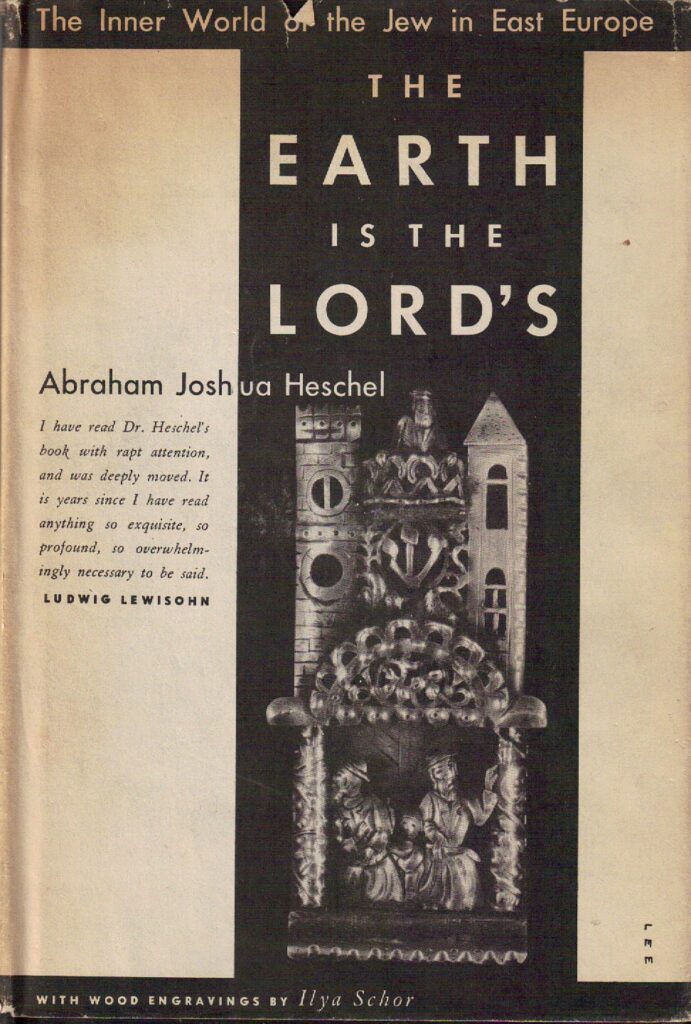The Earth is the Lord’s

The Earth Is the Lord’s: The Inner World of the Jew in East Europe (1950):
Heschel provides a vivid and personal account of Jewish life in Eastern Europe before the Holocaust. Through his personal reflections, he captured the richness of Jewish spirituality, culture, and devotion, shedding light on a world that was tragically lost.
